Playlist:
Christmas Morning Louden Wainwright III 3:38
Song for Christmas Jim Payne & Fergus O’Byrne 2:56
The Perfect Christmas Tree Quartette 2:53
Banjo Cheer Charles Osgood reading John Douglas 4:14
O Come All Ye Faithful Tony Trischka and David Grier 2:32
Let the Good Guys Win Toot Sweet 5:02
[Notes: This is the end of Bill’s Midwinter Music for this year want to tell you abut my plan for next year’s series. I began doing all this Christmas music stuff in 1995, first as mailed out mix tapes (to about 25 people), then CDs, and then via this Substack songs-of-the-day format. That means that next year’s Bill’s Midwinter Music’s is its 30th anniversary! To celebrate that milestone I plan for the songs in next December’s mailings to be a best-of-the-best retrospective from those previous compilations.
Also, I have never purposely used the same song twice. But beginning with today’s last song I am going to begin using ones from past cassettes and CD Samplers as well as new songs. So many of those songs are too good to be not shared with more people.
By the way, if you haven’t been able to keep up with these daily mailings, remember that you don’t need to keep them in your email in-box. All of this music will stay available from my blog/archive at midwintermusic.substack.com.]

Today’s first song is Louden Wainwright III’s Christmas Morning. The first album that it appeared on was his 1999 end-of-the-millennium compilation called Social Studies. That album contained topical and satirical songs that he had written and recorded over a 15 year period for NPR Radio, although that network had declined to broadcast some of them.
The liner notes for the Social Studies album might say when this song was composed but I don’t have that information. I got the song from a compilation box set called Midwinter that does not include a recording date for the song. It just dated it based on the issuance of Social Studies. But there is a reference to Tonya Harding in the song so I think it was perhaps written in 1994.

(Before going on further about this song, the 4 CD box set Midwinter is a fabulous collection of Solstice, Christmas and other midwinter music. It comes from arguably Britain’s premier folk music label, Free Reed Music, and I highly recommend it. The set has 115 recordings covering a similar range of styles of music as I have been giving you, and if you like my write-ups you will love Nigel Schofield’s 136 page full-colour book that is part of the set. Also, using the above link they currently have it for sale at the discount price of £20 – a great value!)
Back to the song – I’ve liked it ever since I first heard it when I bought the box set many years ago and included it in my “secular Christmas songs” candidate file from that first listen. I didn’t know why I liked it so much – it includes a lot of unpleasant references. But like it I did, and it often made the short list for inclusion in annual Christmas Music Sampler CDs, but every time its elements from the dark side prevented the song from making the cut. This year I selected it, still not knowing why, for this special Christmas Day posting.
Perhaps it was just intuition, because while doing the research for this write-up I re-read what Schofield has to say about this song in his liner-note book:
How typical of Louden Wainwright to create a song which sounds so uplifting and yet catalogues the ills of the world. Louden’s 1999 album Social Studies was intended as an end-of-the-millennium round-up of songs which were in many ways short shelf-life (such as his Y2K Song). Sadly, the issues raised in the song are still very much with us.
Starting with a typically sardonic view of the holidays, up to the first chorus it’s about taking a break, giving useless gifts and generally being selfish. After the chorus, it seems we are slipping into a cliché – the tree in the Rockefeller Centre; skaters in the Plaza. Then suddenly the Christmas card veneer is peeled away to show the real world – homelessness, AIDS and the prejudice associated with it, unrest in the Holy Land and – most tragically – the outbreak of the first Gulf War: “There is sand, there are camels; but where are the wise men?”
However Louden’s view is seldom negative… and like modern gold, myrrh and frankincense, three gifts are offered “cures, solutions… compromise.”
Louden Wainwright III was born in 1946. His mother was a yoga teacher and his father, from an old New York family, was a columnist for, and editor of, Life magazine. Early in his career he and other folkies were considered to be “the new Bob Dylan” – you can hear him tell about his life then in his song Talkin’ New Dylan. My personal favourite of his songs is Dead Skunk (in the Middle of the Road) because I have many fond memories of singing it around campfires at music festivals with the members of Vancouver Island’s now-disbanded Flying Accusations.

The album that I got Song for Christmas from was Jim Payne & Fergus O’Byrne’s A Lovely Time of Year. It was loaned to me by Syd Varley and came from her partner the late Dan Page’s music collection. Dan is a local folk music legend – an accordionist who accompanied Morris and contra dancers, and who loved it so much that he built a dance hall on his property in Saanich as a place for them to dance. That loan led me to discover Singsong Inc, a record publishing company owned and operated by Jim Payne that specializes in the folk music of Newfoundland and Labrador, and in turn, Avondale Music, a larger label for regional music of that tradition-conscious province. So now I’m bringing more of Canada’s east-coast music to the west-coast.
This song was written and is sung here by Jim Payne, the songwriter of the duo. But this album isn’t focused on new songs – 9 of its 12 tracks are distinctive variants of traditional carols that they have collected from Newfoundland carol singers and from an old recordings of carollers in the isolated outport village of Green’s Harbour. Jim and Fergus are folk music collectors as well as folksingers within the narrow definition of that word.
Besides being a folk music collector, a musician, a singer, and owning/running a publishing company, Jim is a true Newfoundland mariner. The part of his online biography that most impressed me was the last paragraph:
Jim is also an adventurer who has circumnavigated the island of Newfoundland more than 20 times, sailed through the Northwest Passage and back again, travelled widely through the Canadian and Scandinavian Arctic, including Greenland, Iceland and Svalbard. He has also spent considerable time in the Southern Ocean, crossing the Drake Passage numerous times between Tierra del Fuego and the Antarctic Peninsula, and out to South Georgia and the Falkland Islands.
The Perfect Christmas Tree was written by Sylvia Tyson and Gwen Swick, who joined Quartette after the untimely death of Colleen Peterson in 1996. I first heard this song earlier today (on Christmas Eve.) I was driving my van running some last-minute errands and had it in my CD player. I immediately knew that I had to make a last-minute expansion to today’s playlist.
As soon as I heard it I couldn’t help but envision the four women living together in the same house, writing songs together (they are all singer-songwriters) and living the musicianly zany livestyle of the Beatles in their early movies and the Monkees on TV. Oh I know that is highly unlikely, especially since it wasn’t even true for those groups either. And I suppose that the zaniness would be more along the lines of Golden Girls than either of those two quartets.
Last month Sylvia Tyson released her first new solo album in 10 years and it has been getting very good reviews. It is called At the End of the Day. She also announced that it would be her final one. Tyson is 83 years old now. It is not clear if she just she is meant that she is retiring from making solo albums or whether she is also retiring from Quartette. But besides developing and recording their albums, Quartette usually has release tours, and they annually do a holiday season tour (although, unfortunately, they don’t come here to Vancouver Island.) I could find nothing further about this online, including no mention of Sylvia’s retirement in the “News” section of the Quartette website. Time will tell.
The lyrics for this song are:
Every year it's the same dilemma,
how do you find the perfect Christmas tree ?
I like something you can store in a closet
already decorated, not by me.
Those lonely pines in a lot by the roadside
always bring me to tears.
We could adopt a sapling, then
let it grow in the ground for years and years.
We'll ask the heavens what methods saints use.
The perfect answer - let someone else choose.
We all agree on the ideal tree, it's a
Three foot fir to plant in the Spring.
As we watch it grow it will always bring
Memories of this merry Christmas morning - togetherLet's decorate in the best of taste
old-fashioned beads that swoop and loop around.
I like tinsel in excess
cascading from the tip to the very ground
I have a vision of white light
upward stretching
I find blinking, flashing, bubbling lights are
seasonal and always fetching.
We'll ask the heavens what methods saints use.
The perfect answer - let someone else choose
We all agree on the ideal tree
One star twinkles at the very top.
Beads carry on where the white lights stop
Tinsel tells of a merry Christmas morning - togetherOur little tree in full regalia
Shines in our eyes like the eighth world wonder,
But not really big enough
to fit the presents under it.
I suggest we open all the extras,
that's one solution,
Or we could give some away,
that's a more generous resolution.
We ask the heavens what methods saints use.
The perfect answer - let someone else choose
We all agree on the ideal tree
It sits up proudly on a kitchen crate,
Just a few gifts left, in a happy state
We'll wake up early and celebrate,
Celebrate our Merry Christmas morning - together
The next two selections are a short story called Banjo Cheer written in the very early 20th century by John Douglas and a banjo-guitar duet of the standard melody for O Come All Ye Faithful. Both are from Tony Trischka’s 1995 album Glory Shone Around, released by Rounder Records.
The short story is read by Charles Osgood, the long-time CBS television news personality who hosted The Osgood File daily news commentaries on their radio network from 1971 to 2017, and the weekly televised CBC News Sunday Morning recap and analysis show from 1994 to 2016. On the other hand, you might better remember him as the narrator for the 2008 animated film of Dr. Seuss’ Horton Hears a Who.
I could find nothing about John Douglas, the writer of the story, other than what is in the album’s liner notes. Banjo Cheer first appeared in the December 2011 issue of The Cadenza, a magazine for string instrument enthusiasts at that time.
Of course, I could go on and on about O Come All Ye Faithful (AKA Adeste Fideles) but I don’t have the time so I’ll just give you the basics. It was written sometime between 1740 and 1743 by an English Catholic music teacher named John Wade, who was living in France. Actually, one could think of it being older than that because the melody is somewhat similar to 12th century funeral processional, a manuscript of which has only recently been found in a Portuguese archive. If you want to learn more, here, here and the Wikipedia article about the song might be good places to start.
The banjo and guitar duet is played by Tony Trischka and David Grier, two of the finest bluegrass musicians around, who are both equally adept when they turn their attention to folk, jazz or anywhere else that their musical muses guide them. In my mind, too much bluegrass music has been turned into an opportunity to show off the players’ technical ability, and especially speed – what Trischka calls a “chops parade” – and not to sensitively interpret the meaning of the songs. But I don’t hear that in this rendition. Oh, the technical ability is certainly there but this is a good, honest version of one of the best and most beloved of the traditional Christmas carols. (For you musicians out there, the banjo is Tony’s Stelling Sunflower.)
First, let’s begin with the lyrics:
Let the Good Guys Win
by Murray McLauchlan (1988)
May I get what I want Not what I deserve
May the coming year not throw a single curve
May I hurt nobody May I tell no lies
If I can't go on give me the strength to try
Bring the old year out Bring the new year in
Bring us all good luck Let the good guys win
Bring the old year out Bring the new year in
Bring us all good luck Let the good guys win
May the one you love Be the one you get
May you get some place you haven't been to yet
And may your friends around you Never do you harm
May your eyes be clear And may your heart be strong
Bring the old year out Bring the new year in
Bring us all good luck Let the good guys winBring the old year out Bring the new year in
Bring us all good luck Let the good guys win
May the times to come Be the best you've had
May peace rule the world Let it make us glad
When you see something wrong Try and make it right
Pull a shadowed world Into the bright sunlight
Bring the old year out Bring the new year in
Bring us all good luck Let the good guys win
Bring the old year out Bring the new year in
Bring us all good luck Let the good guys win
Let the good guys win
Let the good guys win
Let the good guys win
This version of Let the Good Guys Win was the final track on my Bill’s 2010 Solstice Sampler. It definitely fits into the category of being an obscure Canadian song that deserves to get much more recognition and appreciation. The lyrics evolve from wishes for what the singer wants, into the form of an Irish blessing upon the listeners.
I think that these are the perfect thoughts for bringing in a new year. It is not that I have anything against the song Auld Lang Syne as the traditional de facto New Year’s anthem– there is a place for remembering the past at this time of year. But the New Year should not be about the past: It should be about the future. We already have a custom of reflecting upon our hopes and resolutions at this time of year: Why not express them in our New Year’s music? That is what this song does.
From what I can piece together it was written and copyrighted by Murray McLaughlan in 1988. As far as I can tell, he never included this song on any of his albums. According to Discogs, in 1989 Capital Records distributed promo copies for radio play of the song being sung by him with Tom Cochran and Paul Hyde as a single on CD, and on cassette with an additional track of McLaughlan doing Swinging on a Star.
In that same year there was a music video made of them singing it which I understand was intended to benefit UNICEF. You can watch it here. Aside from this Toot Sweet version there are only a couple of other home recordings of the song posted by people on YouTube and Facebook, but that is all that I could find. No other versions. I suppose that can be interpreted as meaning the song was a flop.
This version is sung by what appears to have been a short-lived band based in St. John, New Brunswick. Toot Sweet are the named (in small print) performers on the above-shown album called Celtic Christmas. It was issued by LaserLight Digital, a budget label of Delta Music Inc. of Los Angeles. LaserLight mostly issues compilations of recordings that have gone into the public domain, and music played by unnamed studio musicians. However this is a great album and it is occasional finds like this that keep me searching in the bargain bins.
The Toot Sweet performers are Marilyn Inch on vocals and pennywhistle; Gayle DuJohn (referred to by Discogs as Gayle Vincent) also on vocals; Brian Doyle on lead guitar; and Paul DuJohn (Gayle’s husband) on rhythm guitar.
To my ears it is the singing and the song itself (and that lovely tin whistle) that stand out here. Judy Kamminga on celtic harp and Lloyd Hanson playing bass guitar are listed in the liner notes as being members of the band but if they are playing on this track I can’t hear them; for that matter I don’t know if the lead guitarist is playing on this track either since the guitar work seems quite heavy-handed. Even so, I much prefer this rendition, on a budget label from a largely-unknown group, to the original McLaughlan-Cochran-Hyde version that Columbia performed.
Let this song express my wishes for you, and for myself, for the coming year,
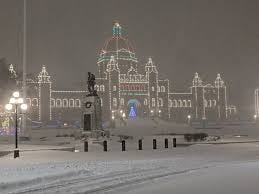
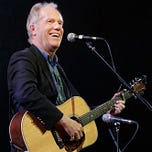

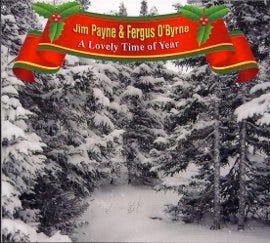
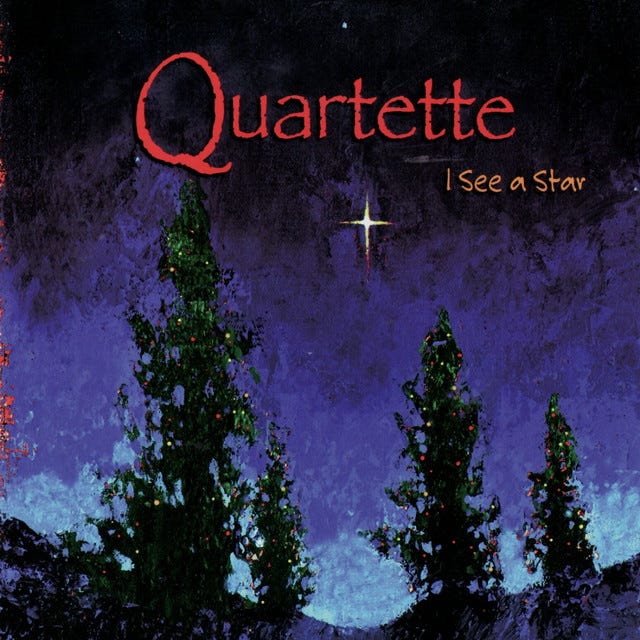






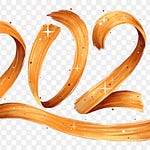

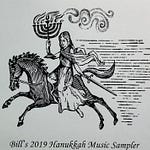
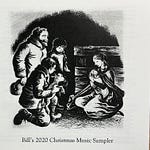

Share this post